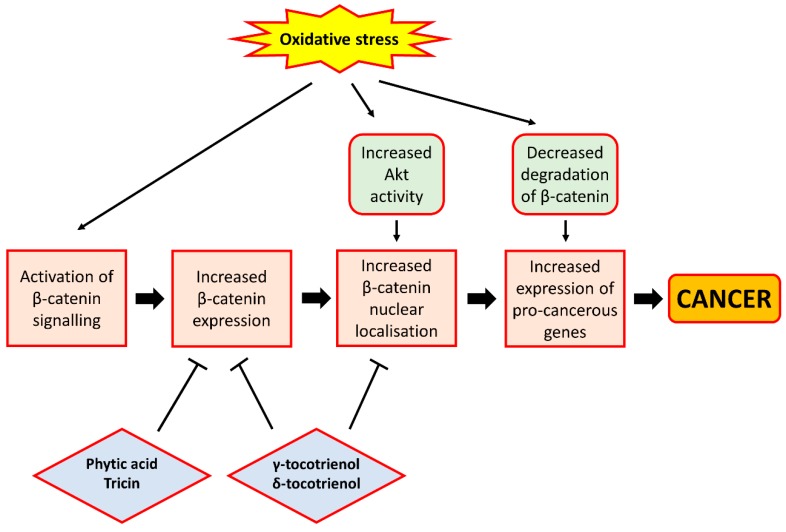Figure 3.
The relationship between oxidative stress and β-catenin signalling. Oxidative stress can lead to activation of β-catenin signalling. This can be achieved through the ability of H2O2 to activate Akt, leading to the increased nuclear localisation of β-catenin, or the ability of superoxide to inhibit the degradation of β-catenin, causing increased expression of pro-cancerous genes such as cyclin D1, c-myc and survivin. On the contrary, rice bran phytochemicals such as phytic acid, tricin and tocotrienols can inhibit β-catenin signalling, largely through the inhibition of β-catenin expression and nuclear localisation. These phytochemicals therefore exhibit cancer chemo-preventive properties by preventing β-catenin from activating the expression of pro-cancerous genes. In the figure, arrows indicate ‘promotion’ or ‘lead to’, and bar-headed lines indicate ‘inhibition’.

